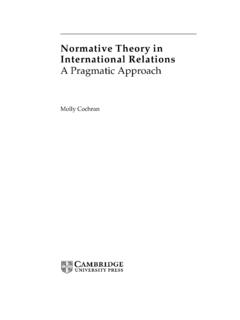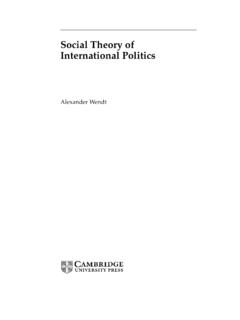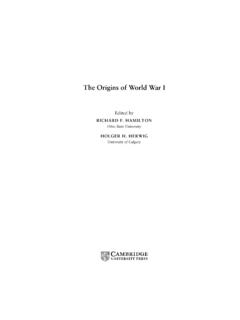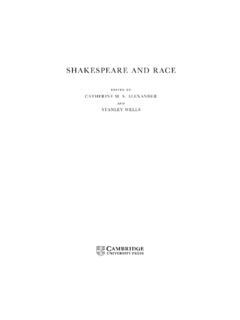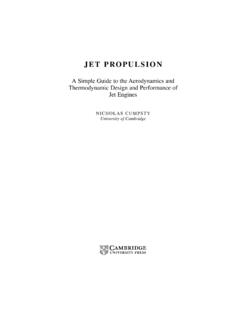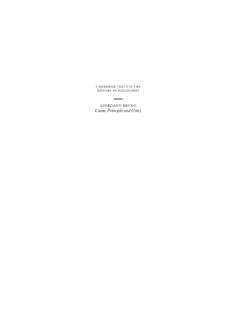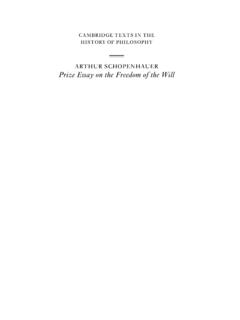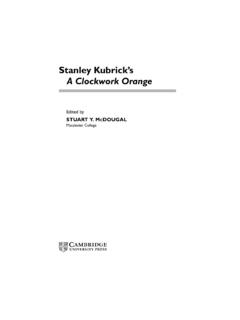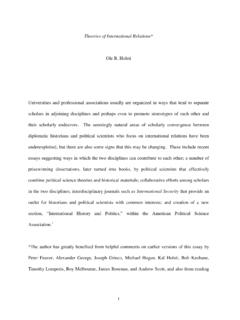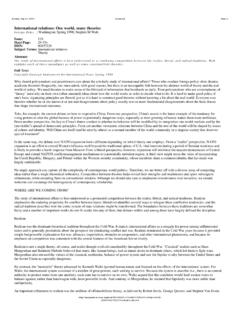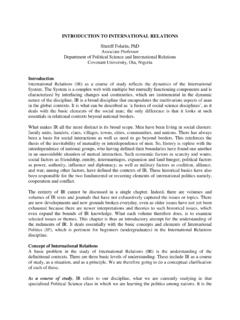Transcription of Realism and International Relations - Library of Congress
1 Realism and InternationalRelationsJack DonnellyPUBLISHED BY THE PRESS SYNDICATE OF THE UNIVERSITY OF CAMBRIDGEThe Pitt Building, Trumpington Street, Cambridge, United KingdomCAMBRIDGE UNIVERSITY PRESSThe Edinburgh Building, Cambridge CB2 2RU, UK http: West 20th Street, New York NY 10011-4211, USA http: Stamford Road, Oakleigh, Melbourne 3166, AustraliaRuiz de Alarc n 13, 28014 Madrid, Spain Jack Donnelly 2000 This book is in copyright. Subject to statutory exception and to the provisions of relevant collective licensing agreements,no reproduction of any part may take place without the written permission of Cambridge University published 2000 Printed in the United Kingdom at the University Press, CambridgeTypeface Plantin MT 10/13 ptSystemQuarkXPress [SE]A catalogue record for this book is available from the British LibraryLibrary of Congress Cataloguing in Publication dataDonnelly, and International Relations / Jack bibliographical references and 0 521 59229 1 (hb) ISBN 0 521 59752 8 (pb)1.
2 International Relations . 2. Realism . I. dc2199-053676 ISBN 0 521 59229 1 hardbackISBN 0 521 59752 8 paperbackContentsAcknowledgmentspageviiI ntroduction11 The realist tradition62 Human nature and state motivation433 Anarchy, hierarchy, and order814 System, structure, and balance of power1075 Institutions and International society1316 Morality and foreign policy161 Conclusion: The nature and contribution of realism193 Selected recommended readings203 References205 Index228v1 The realist traditionOne might imagine that deWning an old and well-established theory suchas Realism would be a simple task. A look at the representative sample ofrecent and prominent deWnitions in box , however, reveals consider-able diversity1 which on further reXection should not be in traditions with authoritative deWning texts, such as Marxismand Christianity, diVerent emphases and antagonistic interpretations arecommon.
3 We should expect at least as much variety in not a theory deWned by an explicit set of assumptions andpropositions. Rather, as many commentators have noted, it is a generalorientation: a philosophical disposition (Gilpin 1986: 304); a set ofnormative emphases which shape theory (Ferguson and Mansbach1988: 79); an attitude of mind with a quite distinctive and recogniz-able Xavour (Garnett 1984: 110); a loose framework (Rosenthal 1991:7); and a big tent, with room for a number of diVerent theories (Elman1996: 26). Realism is an approach to International Relations that hasemerged gradually through the work of a series of analysts who have situ-ated themselves within, and thus delimited, a distinctive but still diversestyle or tradition of Cusack and Stoll (1990: ch.)
4 2) for a review that emphasizes this diversity. More criti-cally, see Goldmann (1988). For further deWnitions see John, Wright, and Garnett (1972:96 97), Maghroori and Ramberg (1982: 14 16), Vasquez (1983: 15 19, 26 30), Olsonand Onuf (1985: 7), Cox (1986: 211 212), Ferguson and Mansbach (1988: 40 47, 102),Stein (1990: 4 7), Rosenau and Durfee (1995: 11 13), Elman (1996: 19 21), Grieco(1997: 164 168), Labs (1997: 7), Mastanduno (1997: 50).12We should note at the outset that I am concerned here with politicalrealism, the traditionof realpolitikor power politics. Realism , however, is also a philosophical doctrine,asserting some kind of correspondence between knowledge claims and an objectiveexternal reality. For a good recent overview of the philosophical debate, see Kulp (1997).
5 Katz (1998) oVers a defense of philosophical Realism that canvasses the leading objec-tions. Realism is also the name of a literary school or movement that was of consider-able prominence in the nineteenth and early twentieth century (as well as in themid-twentieth century, in its socialist variant). Political realists may or may not be phil-osophical or literary the idea of traditions of International thought, see Nardin and Mapel (1992) andDunne (1993). More broadly, compare Gunnell (1979).The realist tradition7 Box deWnitions of Realism (The following passages are direct quotations or very close paraphrases.)1. The state s interest provides the spring of The necessities of policy arise from the unregulated competition of Calculation based on these necessities can discover the policies that willbest serve a state s Success is the ultimate test of policy , and success is deWned as preservingand strengthening the state.
6 (Waltz 1979: 117)1. Politics is governed by objective laws that have their roots in human The main signpost that helps political Realism to Wnd its way through thelandscape of International politics is the concept of interest deWned interms of Power and interest are variable in Universal moral principles cannot be applied to the actions of Political Realism refuses to identify the moral aspirations of a particularnation with the moral laws that govern the The autonomy of the political sphere. (Morgenthau 1954: 4 10)1. The International system is States inherently possess some oVensive military capability, which givesthem the wherewithal to hurt and possibly destroy each No state can ever be certain another state will not use its oVense The most basic motive driving states is States are instrumentally rational.
7 (Mearsheimer 1994/95: 9 10)1. The fundamental unit of social and political aVairs is the conXict group. 2. States are motivated primarily by their national Power Relations are a fundamental feature of International aVairs. (Gilpin1996: 7 8)1. The state-centric assumption: states are the most important actors in The rationality assumption: world politics can be analyzed as if states wereunitary rational actors seeking to maximize their expected The power assumption: states seek power and they calculate their interestsin terms of power. (Keohane 1986b: 164 165)1. Realists assume an ineradicable tendency to Realists assume that the important unit of social life is the collectivity andthat in International politics the only really important collective actor is thestate, which recognizes no authority above Realists hold power and its pursuit by individuals and states as ubiquitousand and International relationsBox (cont.)
8 4. Realists assume that the real issues of International politics can be under-stood by the rational analysis of competing interests deWned in terms ofpower. (Smith 1986: 219 221)1. The centrality of The world is States seek to maximize their security or their The International system is mostly responsible for state conduct on theinternational States adopt instrumentally rational policies in their pursuit of power The utility of force. (Frankel 1996: xiv xviii)1. The International system is Nation-states pursue their own national interests deWned primarily interms of Skepticism toward International laws, institutions, and ideals that attemptto transcend or replace Primacy of balance of power politics. (Wayman and Diehl 1994: 5)1.
9 Humans face one another primarily as members of International aVairs takes place in a state of Power is the fundamental feature of International The nature of International interactions is essentially Humankind cannot transcend conXict through the progressive power Politics are not a function of Necessity and reason of state trump morality and ethics. (Schweller 1997:927)1. History is a sequence of cause and eVect, whose course can be understoodby intellectual eVort, but not directed by imagination. 2. Theory does not create practice, but practice Politics are not a function of ethics, but ethics of politics. (Carr 1946:63 64)1. Groups (states) consider themselves to be ultimate Any measure required for state self-preservation is Law and morality have a subordinate place in International Relations .
10 (Schwarzenberger 1951: 13)Nonetheless, a set of recurrent concerns and conclusions marks thesevarying works as part of a single tradition. The deWnitions in box sharea family resemblance, even though no single set of elements can be foundin each. Both realists and their critics agree that the realist intellectualstyle is unmistakable (Garnett 1984: 29; compare Cusack and Stoll1990: 19; Wayman and Diehl 1994). As an American judge notoriouslysaid of pornography, we may not be able to deWne it, but we know it whenwe see chapter attempts to orient the reader to the realist style,tradition,or approach in four complementary ways: a brief deWnition; a simple,two-dimensional typology; short summaries of six paradigmatic realisttheories; and an overview of the development of realist thought in thetwentieth deWnitionRealism emphasizes the constraints on politics imposed by human natureand the absence of International government.
